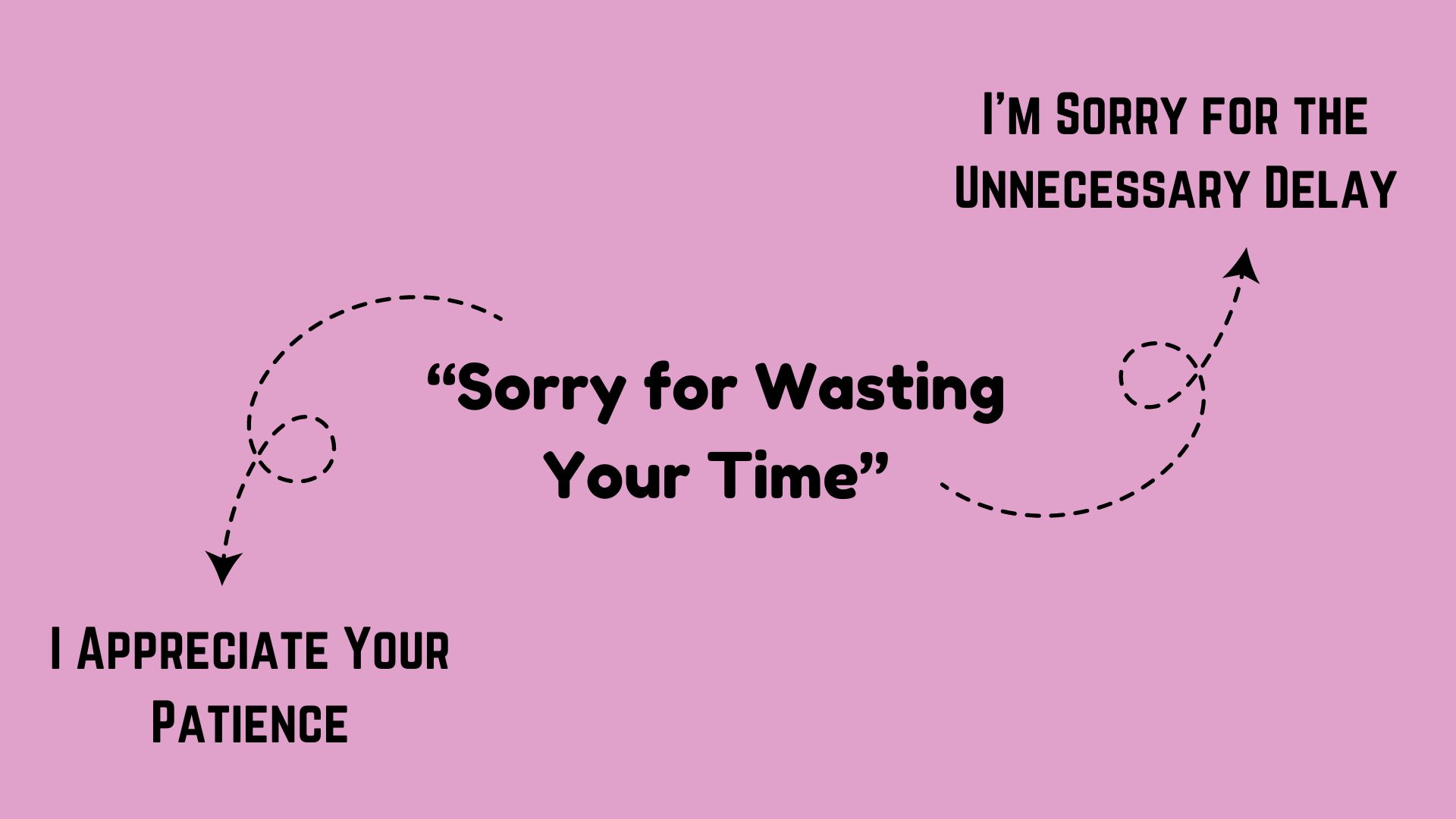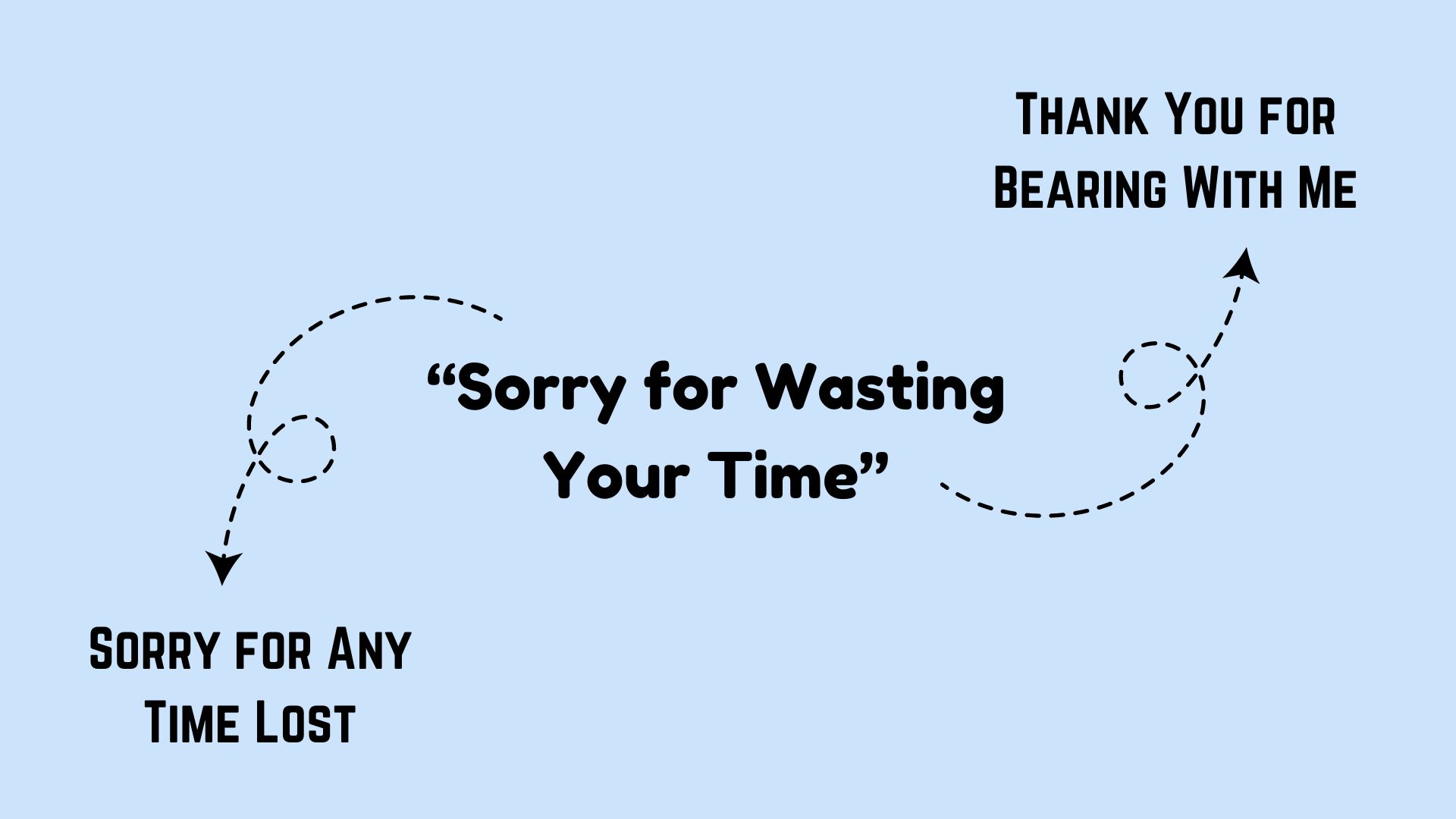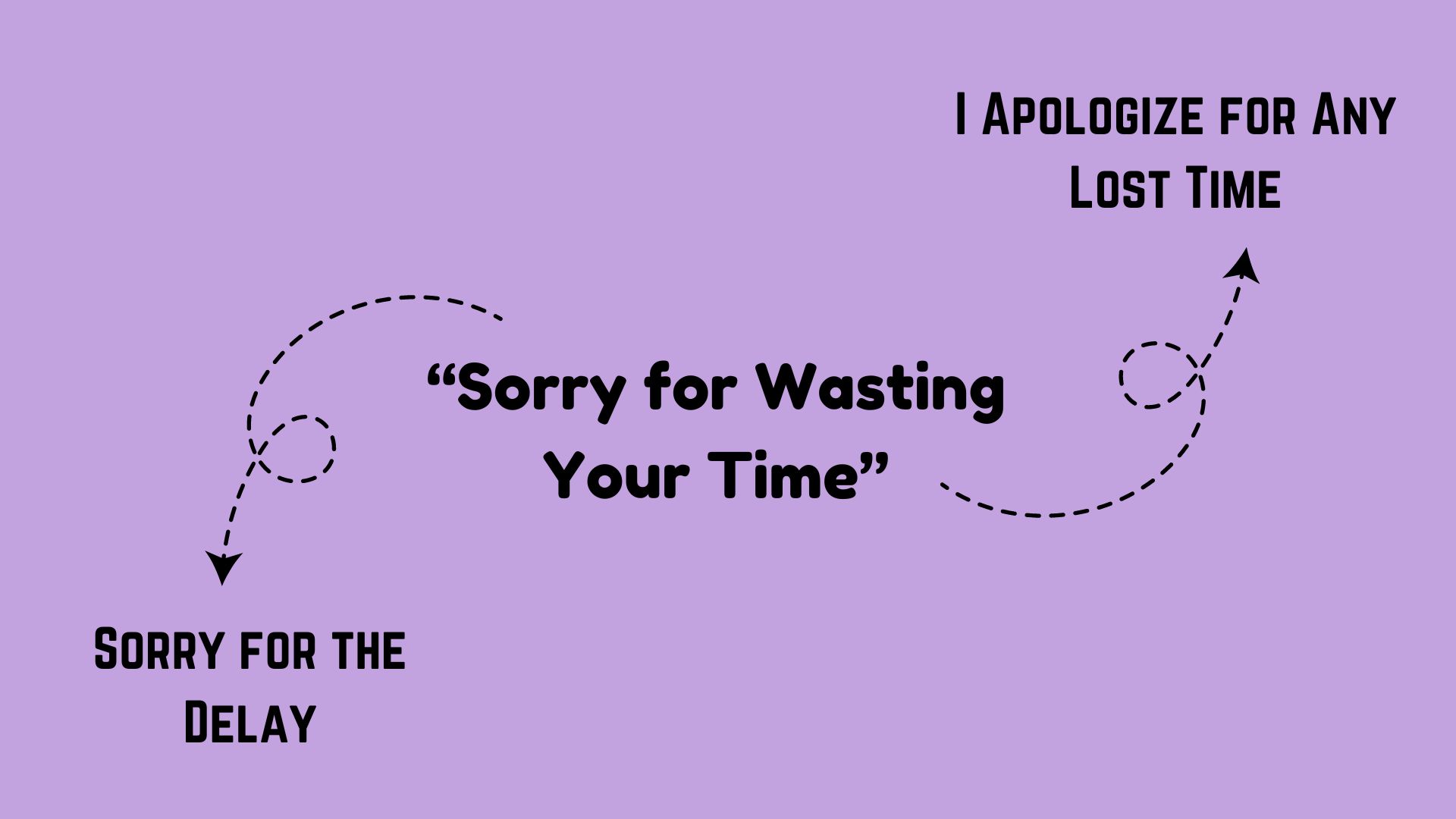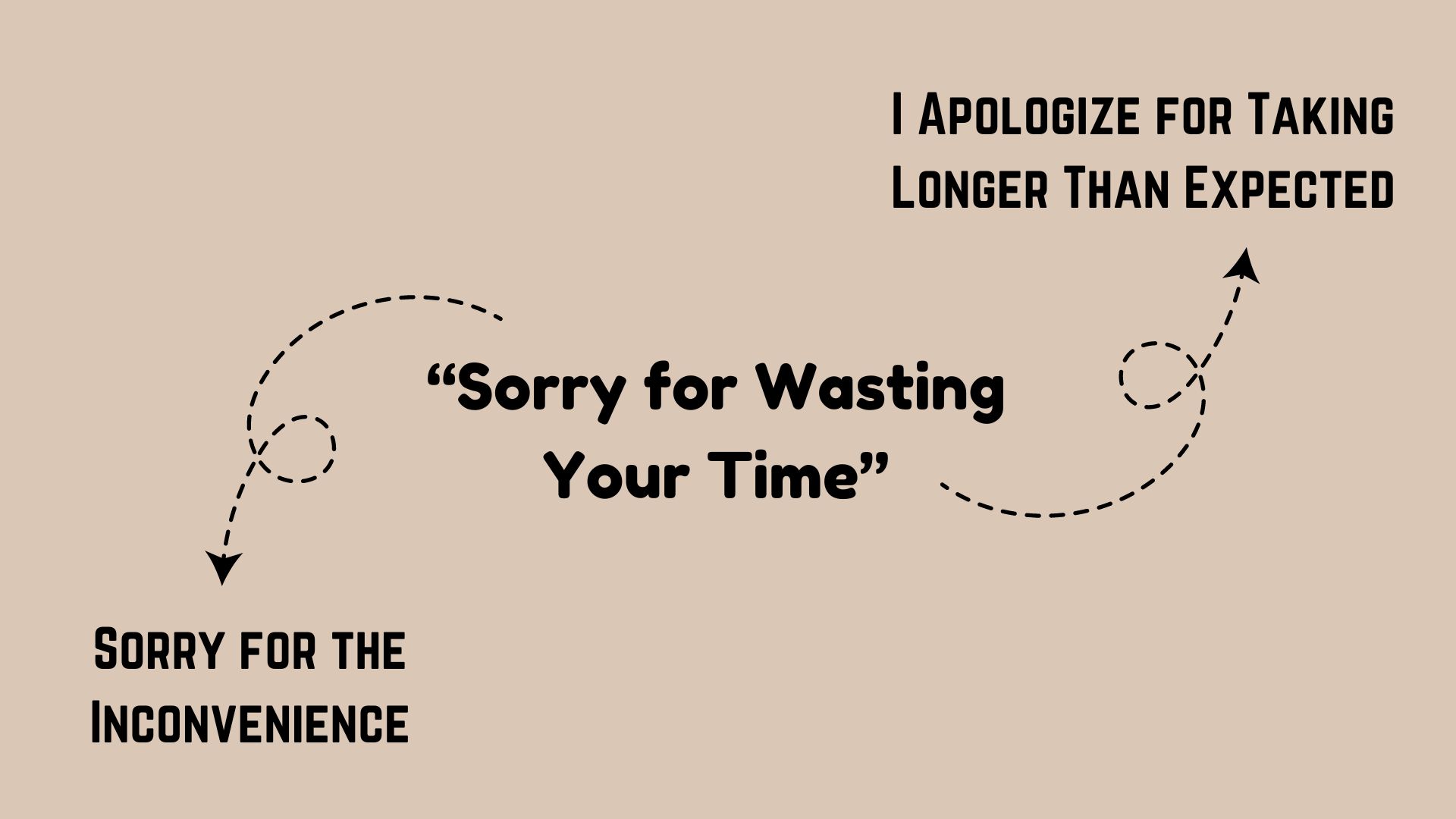Apologizing for taking up someone’s time in a professional setting requires tact and respect. Here are 22 ways to say “Sorry for wasting your time” professionally, each with an example and a specific use case to help you communicate your apology effectively.
1. Apologies for the Inconvenience
Example: “Apologies for the inconvenience caused during our meeting.”
Use Case: When acknowledging that your actions have caused an unnecessary interruption.
2. I Regret Taking Up More Time Than Needed
Example: “I regret taking up more time than needed on this issue.”
Use Case: When you’ve taken more time than necessary to address a matter.
3. I Appreciate Your Patience
Example: “I appreciate your patience during the long discussion today.”
Use Case: When someone has been understanding during a longer-than-expected conversation.
4. I’m Sorry for the Unnecessary Delay
Example: “I’m sorry for the unnecessary delay in resolving this matter.”
Use Case: When a resolution could have been faster but ended up taking longer.
5. I Apologize for the Extra Time Spent
Example: “I apologize for the extra time spent on this task.”
Use Case: When a task took longer than planned and required more of someone’s time.

6. I Regret Any Time Wasted
Example: “I regret any time wasted during our call earlier.”
Use Case: After a meeting or call that ended up being unproductive.
7. Sorry for Any Time Lost
Example: “Sorry for any time lost while discussing this earlier.”
Use Case: When a discussion went off-track or became longer than necessary.
8. I Apologize for the Disruption
Example: “I apologize for the disruption during the presentation.”
Use Case: When your actions interrupted or disrupted someone’s focus or schedule.
9. Thank You for Bearing With Me
Example: “Thank you for bearing with me through the delays today.”
Use Case: When someone was patient during delays or time-consuming matters.
10. I’m Sorry for the Lengthy Process
Example: “I’m sorry for the lengthy process; it should have been quicker.”
Use Case: When a task or meeting took longer than expected to complete.

11. My Apologies for Taking Up Your Time
Example: “My apologies for taking up your time on this matter.”
Use Case: When realizing that the discussion or task wasn’t necessary for the other person.
12. I Regret That We Took More Time Than Expected
Example: “I regret that we took more time than expected in today’s session.”
Use Case: When a meeting or discussion runs over the scheduled time.
13. Sorry for the Delay
Example: “Sorry for the delay in finalizing these details.”
Use Case: When you’re late in providing information or completing a task, causing a delay.
14. I Apologize for Any Lost Time
Example: “I apologize for any lost time this has caused.”
Use Case: When an issue or error caused unnecessary time to be spent by others.
15. I’m Sorry for the Disruption to Your Schedule
Example: “I’m sorry for the disruption to your schedule with this unplanned meeting.”
Use Case: When an unexpected meeting or request interferes with someone’s workday.

16. I Appreciate Your Understanding
Example: “I appreciate your understanding as we worked through the delays.”
Use Case: When someone has been patient with a situation that took longer than planned.
17. I Regret Taking Up Your Time Unnecessarily
Example: “I regret taking up your time unnecessarily during our call.”
Use Case: When reflecting on a conversation that could have been more concise.
18. Sorry for the Inconvenience
Example: “Sorry for the inconvenience caused by the extended discussion.”
Use Case: When a conversation or meeting became longer and disrupted someone’s schedule.
19. I Realize This Took More Time Than Anticipated
Example: “I realize this took more time than anticipated, and I apologize.”
Use Case: When a project or task extended beyond its expected timeframe.
20. I Apologize for Taking Longer Than Expected
Example: “I apologize for taking longer than expected to complete the report.”
Use Case: When a deadline was missed or more time was needed to complete a task.

21. Sorry for the Extended Meeting
Example: “Sorry for the extended meeting; we’ll make it more efficient next time.”
Use Case: When a meeting ran longer than planned and you want to avoid future occurrences.
22. I Apologize for the Unnecessary Discussion
Example: “I apologize for the unnecessary discussion during the meeting.”
Use Case: When a meeting went off-topic or included irrelevant information that took up time.
These phrases help communicate your apology for time lost or wasted while maintaining professionalism and respect for the other person’s time.

